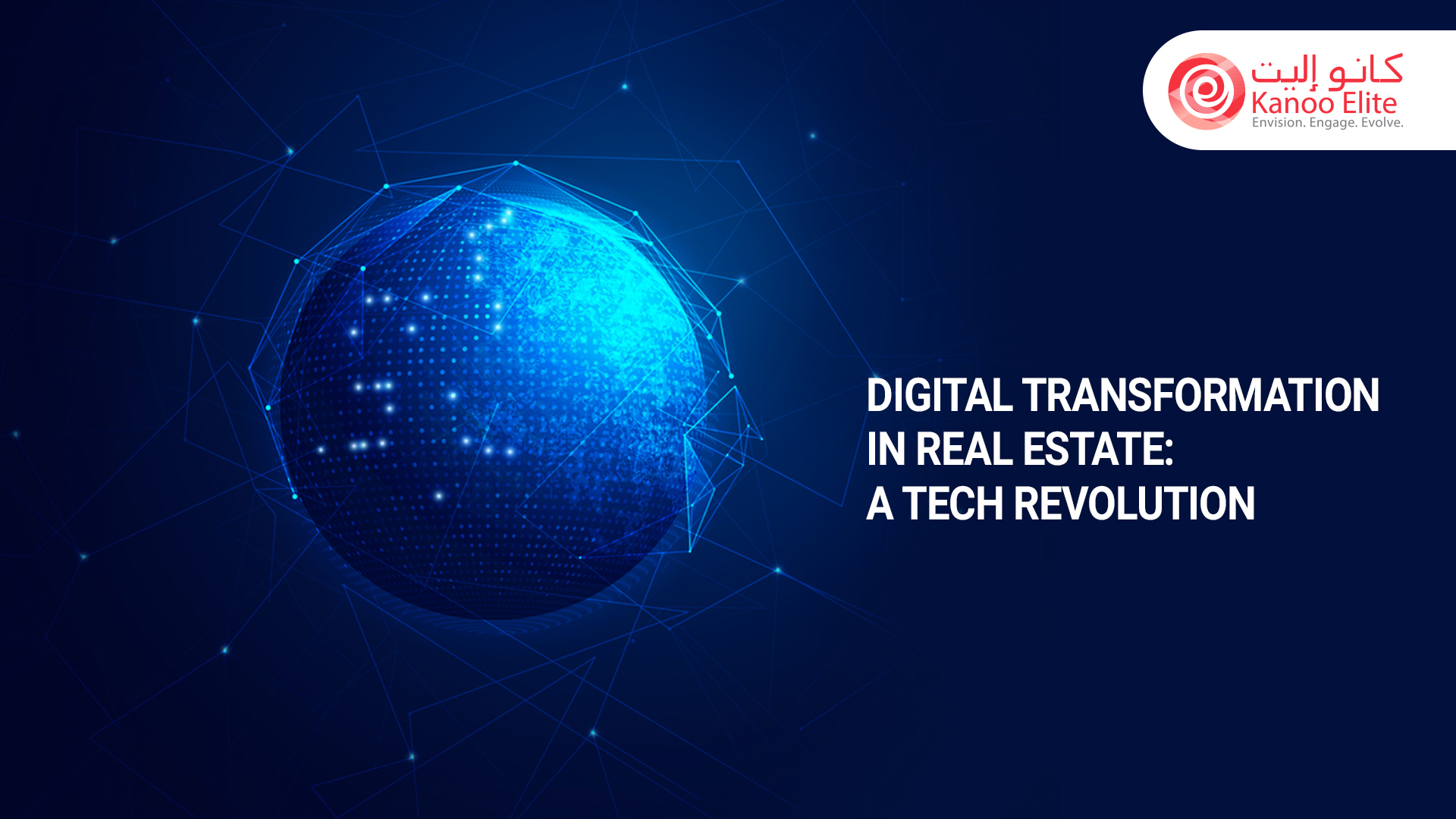The real estate industry, long considered a traditional and slow-moving sector, is experiencing a seismic shift with the advent of digital transformation. Technological advancements are reshaping every aspect of the real estate lifecycle, from property development and management to buying, selling, and leasing. This tech revolution is not only streamlining processes but also enhancing efficiency, transparency, and customer experience. In this article, we will explore the key facets of digital transformation in real estate, its impact on stakeholders, and the potential challenges and opportunities it presents.
I. Proptech and Its Role in Digital Transformation
Proptech, short for property technology, is at the forefront of the digital transformation in real estate. It encompasses a wide range of technologies and innovations designed to disrupt and improve traditional real estate processes. From virtual reality (VR) and augmented reality (AR) to artificial intelligence (AI) and blockchain, proptech is reshaping the industry’s landscape.
Virtual and Augmented Reality: Transforming Property Viewing
One of the most noticeable changes brought about by digital transformation is in property viewing. Virtual and augmented reality technologies allow potential buyers and tenants to take virtual tours of properties without physically being present. This not only saves time but also provides a more immersive and realistic experience. VR and AR are revolutionizing the way properties are showcased, enhancing marketing efforts and helping clients make more informed decisions.
Artificial Intelligence: Optimizing Operations
Artificial intelligence is playing a crucial role in streamlining various real estate operations. Machine learning algorithms are being employed to analyze vast amounts of data, helping in predicting market trends, property values, and investment opportunities. AI is also being used for chatbots in customer service, automating routine inquiries and providing quick responses. Additionally, AI is enhancing property management by predicting maintenance needs and optimizing energy consumption in smart buildings.
II. Blockchain: Revolutionizing Transactions and Security
Blockchain technology, known for its decentralized and secure nature, is transforming the way real estate transactions are conducted. Smart contracts, powered by blockchain, enable secure and transparent transactions by automating and enforcing the terms of an agreement. This reduces the need for intermediaries, minimizes the risk of fraud, and accelerates the overall transaction process. Blockchain is also being explored for property title management, providing a tamper-proof and easily verifiable record of ownership.
III. Data Analytics: Informed Decision-Making
Data analytics is a powerful tool in the digital transformation of real estate. By harnessing big data, real estate professionals can gain insights into market trends, customer behavior, and investment opportunities. Predictive analytics helps in forecasting property values, optimizing rental pricing, and identifying potential risks. Data-driven decision-making is becoming a cornerstone of successful real estate strategies, empowering stakeholders to make informed choices in a dynamic market.
IV. The Rise of Smart Buildings and IoT
The integration of Internet of Things (IoT) devices in real estate is giving rise to smart buildings. These connected buildings use sensors and devices to collect and transmit data, optimizing energy usage, enhancing security, and improving overall operational efficiency. From smart thermostats and lighting systems to automated security features, IoT is making buildings more sustainable, secure, and user-friendly. This trend is not only reshaping the commercial real estate sector but is also gaining traction in residential properties.
V. Customer-Centric Platforms and Apps
Digital transformation has empowered consumers in the real estate market like never before. The rise of online platforms and mobile apps has made property search, buying, and leasing more convenient and accessible. Real estate marketplaces and property listing apps offer users a plethora of options, personalized recommendations, and interactive features. This shift towards customer-centric platforms is changing the dynamics of the industry, forcing traditional players to adapt and innovate to stay competitive.
VI. Challenges and Opportunities
While the benefits of digital transformation in real estate are evident, the industry also faces several challenges on its path to a tech-driven future.
- Resistance to Change: The real estate industry has been known for its resistance to change. Adopting new technologies requires a cultural shift, and convincing industry professionals to embrace these changes can be a significant hurdle.
- Data Security Concerns: As the industry becomes more reliant on data-driven technologies, the importance of data security cannot be overstated. The rise of cyber threats poses a risk to sensitive information, requiring robust cybersecurity measures to safeguard transactions and client data.
- Skill Gap: The integration of advanced technologies demands a workforce with the right skill set. There is a need for real estate professionals who are not only well-versed in traditional practices but also possess expertise in data analytics, AI, blockchain, and other emerging technologies.
Despite these challenges, digital transformation presents immense opportunities for the real estate industry:
- Improved Efficiency: Automation and digitization lead to streamlined processes, reducing manual efforts and minimizing errors. This, in turn, improves overall operational efficiency for real estate professionals.
- Enhanced Customer Experience: The use of technology allows for a more personalized and interactive customer experience. Virtual property tours, AI-driven chatbots, and customer-centric platforms contribute to higher satisfaction levels among buyers, sellers, and tenants.
- Increased Transparency: Blockchain, in particular, enhances transparency in real estate transactions by providing an immutable and verifiable record. This transparency builds trust among stakeholders and reduces the risk of fraud.
- Sustainable Practices: The integration of smart buildings and IoT devices promotes sustainable practices in real estate. Energy-efficient buildings, optimized resource usage, and eco-friendly technologies contribute to a more environmentally conscious industry.
Summing It Up
The digital transformation in real estate is not merely a technological evolution but a revolution that is reshaping the industry from its core. Proptech innovations are creating a more connected, efficient, and customer-centric real estate ecosystem. While challenges exist, the opportunities presented by digital transformation are too significant to ignore. As the industry continues to embrace and adapt to these technological advancements, the real estate landscape of the future will be characterized by agility, transparency, and a seamless integration of traditional and cutting-edge practices. The tech revolution in real estate is underway, and those who embrace it are poised to thrive in the dynamic and ever-evolving real estate market.



